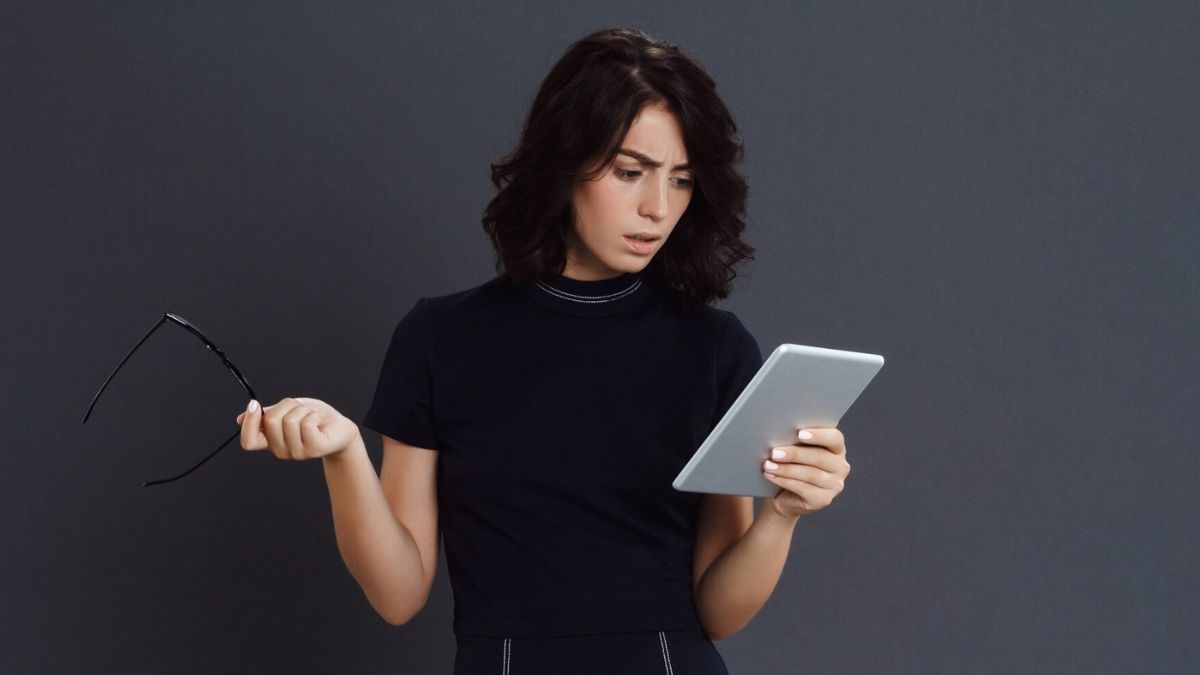Social Media and the Rise of Women Influencers: 7 Key Ways Women Are Monetising Social Media

Over the last decade, social media has revolutionised the way we communicate, share ideas, and build personal brands. The rise of platforms such as Instagram, YouTube, and TikTok has transformed the digital landscape, allowing women to not only connect with others but also turn their online presence into a lucrative career. From humble beginnings as bloggers to becoming full-fledged influencers, many women are now earning substantial income from their social media activity. In this article, we will explore the journey from blogger to influencer, highlighting seven key ways women are monetising social media.
Social Media as a Platform for Building Personal Brands
The foundation of any successful influencer career starts with building a strong personal brand. Social media provides the perfect platform for women to showcase their interests, expertise, and lifestyle in a way that resonates with their target audience. Unlike traditional advertising or media, social media allows for a more authentic connection with followers. Women influencers often share relatable content about their daily lives, challenges, and achievements, creating a bond with their audience that goes beyond just selling products.
To build a personal brand on social media, influencers typically focus on niche topics, such as beauty, fashion, fitness, or travel. By consistently posting content that aligns with their brand values, they can attract followers who share similar interests, which helps increase engagement and build trust. This trust is essential when it comes to monetisation because followers are more likely to purchase products or services endorsed by someone they feel connected to.
Social Media and Sponsored Content: A Lucrative Revenue Stream
One of the most common ways women influencers are monetising social media is through sponsored content. Brands are increasingly looking to collaborate with influencers to promote their products or services, recognising the power of social media in driving consumer behaviour. Sponsored posts typically involve an influencer showcasing a product or service in a way that aligns with their personal brand, either through photos, videos, or written content.
For women influencers, sponsored content is a powerful revenue stream because it allows them to work with brands that align with their values and interests. For example, a beauty influencer might partner with a skincare brand to promote their latest products, while a fitness influencer might collaborate with a sportswear company. The more followers and engagement an influencer has, the more they can charge for sponsored posts, making it a highly profitable endeavour.
However, it is important for influencers to remain authentic when creating sponsored content. If the promotion feels too forced or inauthentic, followers may lose trust in the influencer, which could harm their reputation and earnings potential. Successful influencers maintain a balance between promoting products and staying true to their brand, which is key to maintaining long-term success.
Social Media and Affiliate Marketing: Earning Through Referrals
Another way women are monetising social media is through affiliate marketing. This involves promoting products or services through unique referral links that track sales made through the influencer’s recommendations. When followers make a purchase using the influencer’s link, the influencer earns a commission, often ranging from a few per cent to 30% or more, depending on the brand and the product.
Social media platforms, particularly Instagram and YouTube, are ideal for affiliate marketing because they allow influencers to demonstrate products in use. For example, a fashion influencer might post a picture of herself wearing a dress and include an affiliate link to the brand’s website. Similarly, a beauty influencer could create a tutorial using a particular product and provide followers with an affiliate link to purchase it. Many women use affiliate marketing to complement their sponsored posts, making it a consistent and passive income stream.
Affiliate marketing offers influencers the flexibility to earn money without needing to create or own the products they are promoting. Instead, they can focus on finding products that align with their personal brand and resonate with their audience. Many women influencers use affiliate networks like Amazon Associates, RewardStyle, or ShareASale to find products to promote, allowing them to generate revenue across a variety of categories.
Social Media and Product Collaborations: Creating and Selling Own Products
In addition to partnering with brands, many women influencers are taking control of their own entrepreneurial journeys by launching their own products or services. Social media allows influencers to tap into their audience’s interests and needs, which can help them develop products that their followers will want to buy. These could range from beauty lines, clothing collections, fitness programs, or even digital products like eBooks and online courses.
For example, successful influencers like Kylie Jenner and Huda Kattan have built multi-million-dollar businesses by launching their own makeup lines. These women used social media as a powerful tool to generate buzz around their products, promote them to their followers, and create a direct sales channel. By interacting with their audiences and listening to their feedback, they were able to create products that resonated with their followers.
For smaller influencers, launching a product may not mean starting a full-scale cosmetics brand, but it can involve selling merchandise like t-shirts, mugs, or jewellery with their personal branding. Platforms like Shopify, Etsy, and BigCartel have made it easier for women to set up their own online stores and sell directly to their social media audience, bypassing traditional retail models.
Social Media and Paid Partnerships: Long-Term Collaborations
While sponsored posts are a common way to earn money, many women influencers are also forming long-term partnerships with brands. Paid partnerships often go beyond a single sponsored post and involve a more integrated approach. These partnerships may include a series of content, such as Instagram stories, YouTube videos, blog posts, or even live streams that promote the brand over an extended period.
Long-term collaborations benefit both the influencer and the brand. For influencers, they provide a steady income stream and allow for deeper engagement with the brand, making the promotion feel more authentic and genuine. For brands, these long-term relationships often lead to stronger brand loyalty and deeper audience trust. Successful influencers can negotiate lucrative deals that guarantee consistent payments in exchange for continuous promotion of a brand or product.
For example, a fitness influencer might partner with a health supplement company to promote their products over several months. The influencer may create content that demonstrates how the supplements help with workout performance, share discount codes, and provide regular updates about the product’s benefits. Over time, these long-term partnerships build trust between the influencer, the brand, and the audience, leading to a higher conversion rate.
Social Media and Subscription Models: Creating Exclusive Content
As social media continues to evolve, some women influencers are monetising by offering exclusive content through subscription-based models. Platforms like Patreon, OnlyFans, and Ko-fi allow influencers to offer their followers access to premium content in exchange for a monthly fee. This could include behind-the-scenes footage, early access to videos, personal advice, or even one-on-one interactions.
Subscription models offer a stable and predictable income for influencers, allowing them to diversify their revenue streams beyond sponsored posts and product sales. These platforms are particularly popular with creators who have a highly engaged and loyal fanbase, as their followers are willing to pay for extra content that is not available to the general public. Influencers can build a sense of community among their subscribers, which helps foster long-term relationships and creates a more personalised experience.
For example, a lifestyle influencer might offer exclusive videos, vlogs, or personalised shoutouts to their Patreon subscribers, providing added value that goes beyond what is shared on their public social media accounts. This allows women to create a sustainable income that doesn’t rely solely on brand partnerships or ad revenue.
Social Media and Ad Revenue: Earnings from Content Creation
Last but not least, women influencers are monetising social media through ad revenue. Platforms like YouTube, Instagram, and TikTok offer creators the ability to earn money from ads that are shown before, during, or alongside their videos. For women who have built large followings, this can become a significant source of income.
YouTube’s Partner Programme, for example, allows creators to earn money from ads shown on their videos. Similarly, Instagram’s “Shop” feature and TikTok’s “Creator Fund” offer monetisation options that reward influencers based on the number of views, likes, and interactions their content generates. The more engaging and viral the content, the higher the earnings potential.
However, ad revenue can be unpredictable and dependent on factors such as audience demographics and platform algorithms. Successful influencers often combine ad revenue with other monetisation methods, such as affiliate marketing or sponsored content, to ensure a steady stream of income.
The Future of Social Media Monetisation for Women
Social media has provided women with unprecedented opportunities to build their own businesses, engage with audiences, and monetise their personal brands. From sponsored content and affiliate marketing to launching their own products and earning ad revenue, women are capitalising on the digital age to create diverse and sustainable sources of income.
As social media platforms continue to evolve, women influencers will likely find even more ways to innovate and generate revenue. With the right strategies, dedication, and authenticity, the journey from blogger to influencer is no longer just a dream, but a viable career path that empowers women to take control of their financial futures. Social media has levelled the playing field, giving women the tools to succeed in ways that were previously unimaginable.









